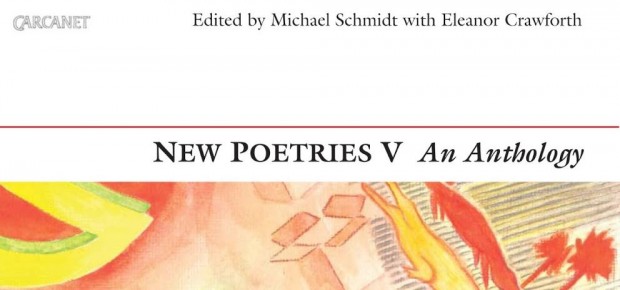You have no items in your cart. Want to get some nice things?
Go shopping
When the poets of Carcanet’s 2011 anthology New Poetries V gathered at the London Review Bookshop, it was clear that they were all successful. Unlike most other reunions, this was no place for underachievers. Out of the original 22 contributors, only six made it this far. This fact didn’t escape co-editor Michael Schmidt, who in a curiously business-friendly phrase referred to the “high strike rate” of the collection in his introduction.
If New Poetries V was an investment portfolio coming to maturity in Q1 2014, the savvy poetry speculator would have found it a mixed bag, but overall a solid investment. One suspects that Schmidt and his co-editor Eleanor Crawforth pictured the evening as a cheeky mark-to-market rather than the final maturity of their stock, because, as is almost obligatory where poetry anthologies are concerned, there was much emphasis placed on youth of its contributors. The poet Peter Riley describes this “youth tactic” as a cynical and age-old “clearing of space” in his review of Nathan Hamilton’s anthology Dear World and Everyone In It: New Poetry in the UK.
Julith Jedamus was the first Carcanet alumnus at the microphone, reading, among other things, her “Bruegel’s Massacre of the Innocents (Retouched)”, a grim response to the Newtown shootings. Her laconic delivery nourished the sonic play of her poems, which were sometimes marred by unimaginative rhymes like “fought”/”taught”. There were other offenders on the night: “white”/”bright”, “dark”/”arc” and “black”/”back” all featured in readings by the other poets. It would be cloth eared to suggest that such rhymes are always a mark of bad poetry, but they did belie Schmidt’s repeated claims that he was showcasing “experimental poets”. In the voices of the Carcanet V poets, these rhymes were, at the worst of times, little more than tags that said ‘this is poetry’ or the squeaky hinges on the coffins of dead metaphors.
Jedamus read with a slightly irritating poetry voice, one that seemed to say “you can read these later”. The result was a shyness of delivery that fell well short of a more fully realised agnosticism towards the possibility of successful poetry readings and a voicing that might have articulated the ways that poetry can sound just shy of the page when read aloud. The whole was not enhanced by Jedamus’s habit for upward inflection at the end of lines and especially on words like “original beauty”.
Helen Tookey was next and her reading style was a welcome contrast. She read with an edge of hurt to her voice that was almost indistinguishable from the right kind of nerves. Tookey was assisted by Tara Bergin in reading a memorable poem for two voices, a collage from entries in the diary of Virginia Woolf responding to the death of Katherine Mansfield. The two speakers interrupted one another but interruption in performance should not be such a parlour game complete with the “knowing-you’re-about-to-be-interrupted voice”. This was a collage with rather too much white space between the shapes, where there should only have been tears.
Oli Hazzard’s poems were properly cut up and provided the only genuine surprise of the evening. Hazzard read in a mock 10-year-old reading style, with a quavering, slightly yawning voice. His set included a poem made up of Googled definitions of unusual verbs and an Oulipian piece made entirely of palindromes. Hazzard’s poems included clotted phrases like “totally off trend” and “microbes of sand grow on my eyes” as well as understated slant rhymes like “undigested meat”/”abusive speech”. His was the only poetry that approached an encapsulation of what it is like to be now, or indeed in 2011, and it was the only truly experimental poetry in evidence.
I came away from the evening with very little sense of what Schmidt meant with his frequent references to the “experimental” at the beginning of the evening. This is a word used with abandon in both mainstream and innovative British poetry circles and it has attained a fuzzy status of consecration even while used as a badge for those proudly unaffiliated to any institution. It is obvious that Schmidt does not mean the same thing by “experimental poetry” as the convenors of the Royal Holloway’s MA in Poetic Practice, though I found myself hoping he did.
Oli Hazzard shared the fate of the other five readers, who were memorialised in commemorative bookmarks to mark the occasion. Such is the reality of the economics of poetry. Still, the evening felt very much like a reunion of one, or rather of Hazzard’s 2011 and 2014 selves. He’s highly investible, and still going strong.

About C.C. Kerr
Chris Kerr lives in London. He is an associate member of the board at Magma Poetry where he is responsible for the digital versions of the magazine. He is reviews editor at Dead Ink. Chris has written for A Younger Theatre and poetry review magazine Hix Eros. He presented a paper on the work of concrete poet Ian Hamilton Finlay at an academic conference at the University of Strathclyde in 2013.




